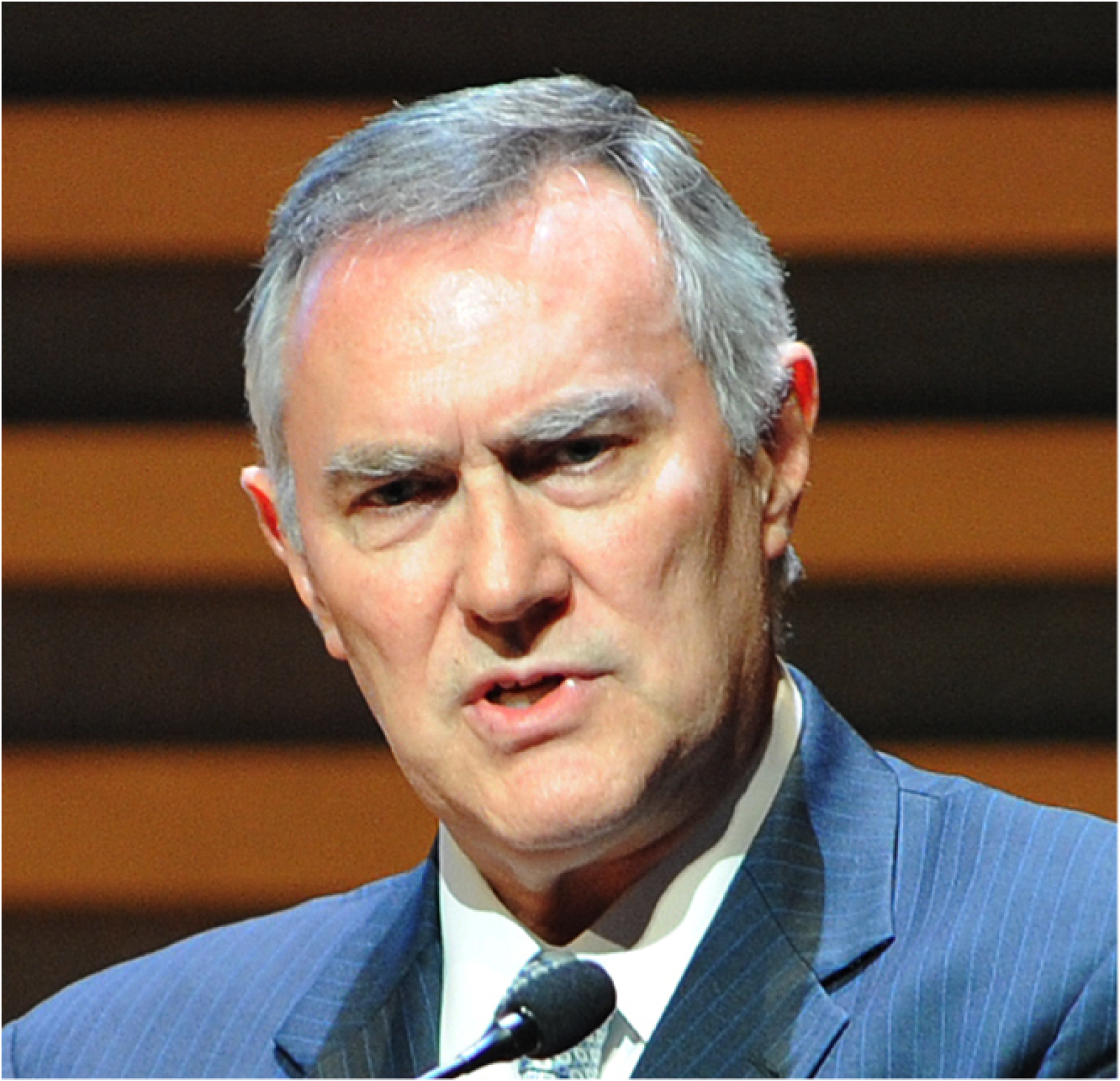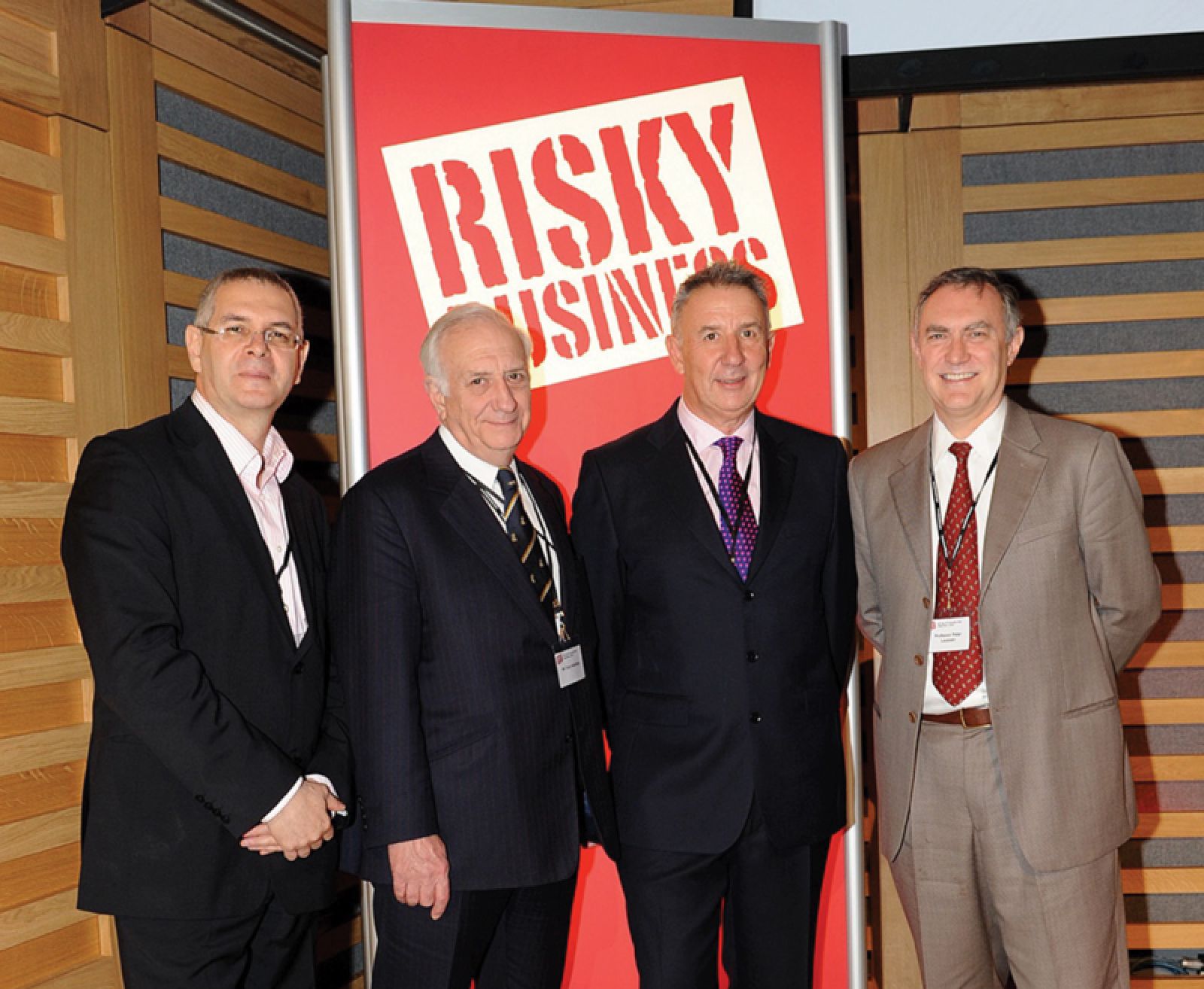Dr. Peter Laussen on the value of next month's "Risky Business" forum

Dr. Peter Laussen speaking at a Risky Business conference in London
Peter C. Laussen, M.B.B.S., is Executive Vice President of Health Affairs at Boston Children's Hospital and Professor of Anesthesia at Harvard Medical School. Originally from Australia and specializing in pediatric intensive care and children with heart disease, Dr. Laussen’s interests and expertise include the use of physiologic data for predictive modelling and systems and human engineering applied to critical care medicine. He is a co-founder of Risky Business, a conference series focused on improving safety and outcomes by learning about teamwork, human factors, systems engineering and more from people in other high-risk industries and endeavors. Risky Business: Navigating a Shifting Health Care Landscape, a virtual patient safety forum, will take place live from Massachusetts on April 15, at 12:00 p.m. For more information and to register, click here.
Betsy Lehman Center: Risky Business is an unusual name for a patient safety conference. Please tell us a bit about why you started hosting these events and the ways in which they have contributed to our understanding of patient safety.
Dr. Laussen: The conference series we now call Risky Business started roughly 15 years ago, at a time when people began to explore different ways to think about patient safety. Together with friends and colleagues in London, I was aware of developments outside of medicine — in Formula 1 racing and the airline industry, for example — that provided new perspectives on problems we all share. In health care we thought of accidents as being caused by individuals, whereas it really was the system that was the problem. We began to learn that system factors were driving human errors. We wanted to bring people with different backgrounds together to share what they were learning and stimulate new thinking.
With the original conference in 2006, we hoped to learn from people who had taken risks in different ways and figured out how to manage them. It was all about how people work within systems and how those systems can fail — not about how people fail.
At that first conference we heard from someone who worked on nuclear submarines, a person who had experienced an oil rig disaster, and from the chief medical officer for Formula 1 race teams. And I presented about a major safety event that had happened at Boston Children's Hospital, where I was working at the time, about three years earlier but was still very fresh in everybody's mind.
We held that first conference in London and called it “Everybody’s Business.” Over time, we realized that “Risky Business” was an even better way to describe patient safety and the challenges we share with other industries. The result has been quite a journey and become something of a passion internationally. We've now held over 20 conferences in London, Boston, Toronto, and Cape Town.

Risky Business co-founders (l to r): Dr. Allan Goldman from Great Ormond Street Hospital for Children in London; Dr. Tony Giddings, Royal College of Surgeons in London; Mr. Guy Hirst, BA 747 pilot; and Dr. Peter Laussen
Betsy Lehman Center: Risky Business has featured space disaster analysts, mountaineers, cyber security experts, among others. How can people in the patient safety community draw inferences relevant to their work from these experts in other industries and endeavors?
Dr. Laussen: Although we feature stories told by individuals, the learning moves toward teamwork, coaching, leadership and system design. We learn about transferring information, connecting with people and the important role of human factors and behavioral science. These are all crucial lessons for patient safety.
Prof. Sid Watkins, neurosurgeon and CMO for Formula 1, is a good example. He dramatically improved the death rate from crashes by redesigning the cockpit of the car but also and more significantly by redesigning the way race teams think about risk and the process they use for deciding whether to race or not in certain circumstances. It used to be the loudest voice would win without necessarily having asked, “What's the risk if we race?” He changed the culture and as a result, the mortality and injury associated with Formula 1 just plummeted. It was remarkable. So there’s one example, and it wasn't one intervention that worked. It involved systems engineering, design engineering, behavioral sciences, changing culture, leadership, debriefing, communication, being open to opinions and integrated thinking — the opposite of a top down approach.
Another important component of the experience of Risky Business is the narrative. These are real people telling stories about events they were involved in and the personal impact of those events on them and the people they work with. The stories are also about the systems they work within — what went wrong and what worked well. Through hearing those narratives, people understand that they are not alone. The problems we face in health care — the problems I face at the bedside, managing a child with critical illness — are similar to many problems that people face in other systems. It’s a great way to learn. Quite frankly, it’s also inspiring to hear what other people are doing.
Betsy Lehman Center: What are you looking forward to most about this year’s virtual conference from Boston?
Dr. Laussen: The program will offer some terrific speakers sharing how they’ve managed COVID during the past year and how they see us emerging from the pandemic. Kevin Churchwell, M.D., soon to be Chief Executive Officer of Boston Children's Hospital, will describe how the hospital has come through this challenging time. Lieutenant Colonel Susan Gannon, who served two tours of duty in Iraq with the U.S. Army, helped Tufts Medical Center formulate its COVID response. She's an example of someone who can provide a view of risk and systems in high hazard situations through a different but relevant, non-health care lens. We’ll also hear from Josh McDaniels, the New England Patriots' offensive coordinator. He will show us how the NFL used intensive testing, regulations and restrictions to protect players and employees from COVID and get through the past season.
With this program, we’ll be focused not only on the stories of what happened, but also ask, "What have we learned in the past year and how do we move forward?" Don Berwick, M.D., President Emeritus and Senior Fellow at the Institute for Healthcare Improvement and former Administrator of the Centers for Medicare & Medicaid Services, will be our guide in that regard. Dr. Karthik Sivashanker, who leads Equitable Health Systems and Innovation work at the American Medical Association, will talk about the intersection of safety, quality and equity. Dr. Patricia Trbovich from Toronto will provide insights on human factors related to our response to COVID.
Beyond that, I look forward to showcasing the eclectic and highly accomplished community of people working in patient safety in Boston and across Massachusetts. This will be one of the first times that this group of people, drawn from the main teaching hospitals in Boston, the Betsy Lehman Center, CRICO, IHI, the Massachusetts Health and Hospital Association, the Massachusetts Medical Society and others, will come together to share and learn about this extraordinary past year. I hope that it serves as a stimulus for us to keep working together in this way.